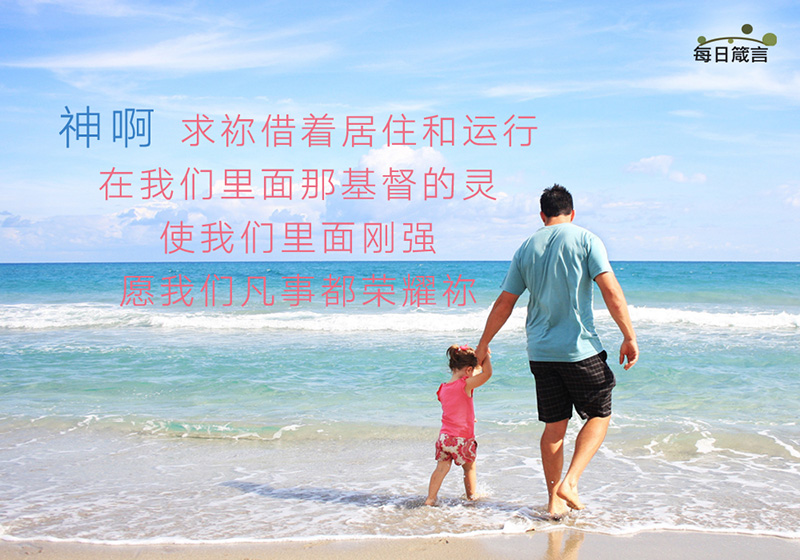

昨天我们专注在作为基督徒必须学习知足。保罗详细解释说他的生活 – 就像大多数人的生活一样 – 有着各种起起伏伏。他有过富裕、吃得好、睡得香的时候,也有过缺乏、饿着肚子睡觉,没有床甚至连暖和干燥的毯子也没有的时候。
保罗实际上在说:“这就是我学会知足的学校。”有人学习知足,是在顺境中不忘它们是神的恩赐;也有人学习知足,是在逆境中不忘主仍与你同在。
但真正的秘诀是:我们的力量并不是来源于自己。保罗说靠着那加给他力量的,他凡事都能作。
请注意,这不仅意味着在困难时期能知足,也意味着在安逸时期能感恩。两者都需要一种力量,而这力量是单单来自基督的。这是交织在这信中的信息,也是我们一直在探索挖掘的。对保罗来说,永远都是耶稣,耶稣,耶稣。离了耶稣,我们什么都不是。有了耶稣,我们凡事都能做。
很简单,这就是好消息,福音。你是否认识这位靠着祂我们凡事都能做的耶稣呢?
神啊,求祢藉着居住和运行在我们里面那基督的灵,使我们里面刚强。愿我们凡事都荣耀祢!阿们。

腓立比书 4:12-13
12 我知道怎样处卑贱,也知道怎样处丰富,或饱足或饥饿,或有余或缺乏,随事随在,我都得了秘诀。
13 我靠着那加给我力量的,凡事都能做。
"I can do all this through him who gives me strength." — Philippians 4:13
Yesterday we focused on Christian contentment as something we all must learn. Paul elaborates by saying that his life—like most people’s lives—has had its share of ups and downs. He has had times of plenty, dining on fine food and sleeping in a warm bed. And he has had times of great want, going to sleep hungry and without having a bed at all or even a blanket to keep him warm and dry.
“This has been my school of contentment,” Paul says, in effect. One learns to be content in good times without forgetting that they are a gift from God, and one learns to be content in bad times without forgetting that the Lord is still with you.
But here’s the real secret: our strength is not our own. Paul says he can do all this through the one who strengthens him.
Note that this means not only being content when times are tough, but also being grateful when times are good. Both require a kind of strength, and this comes from Christ alone. This is the message woven throughout this letter we have been exploring. For Paul, it is always Jesus, Jesus, Jesus. Without Jesus, we are nothing. With Jesus, we can do all things.
That is, very simply, the good news, the gospel. Do you know this Jesus in whom we can do all things?
Strengthen our inner being, O God, by the power of the Spirit of Christ living and working in us. And may we do all things to your glory! Amen.
诵读: 楚云
片头: 张妙阳

